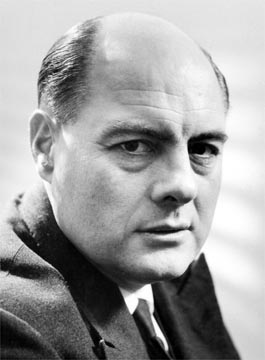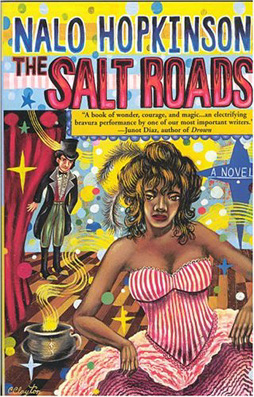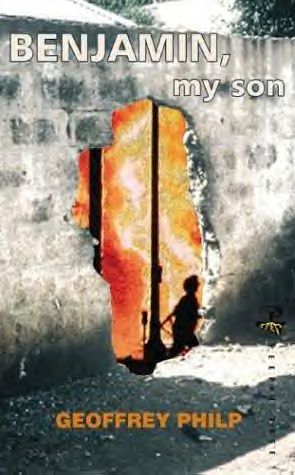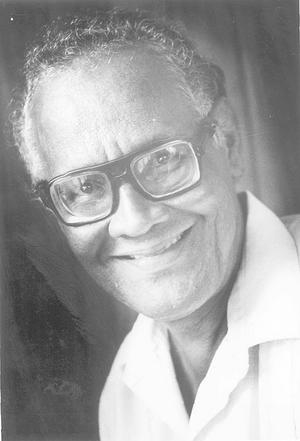 One of the crucial elements in the rapid development of the literature of the Anglophone Caribbean in the 1940s and 50s was a weekly radio programme called Caribbean Voices, broadcast from London on the BBC's Caribbean Service and produced by Henry Swanzy. Caribbean Voices featured stories and poems by West Indian writers, recorded in London and broadcast back to the West Indies, allowing these writers to reach an audience unrestricted by island boundaries and helping to foster the sense that the young literature of the Anglophone Caribbean territories was a single national literature: West Indian literature.
One of the crucial elements in the rapid development of the literature of the Anglophone Caribbean in the 1940s and 50s was a weekly radio programme called Caribbean Voices, broadcast from London on the BBC's Caribbean Service and produced by Henry Swanzy. Caribbean Voices featured stories and poems by West Indian writers, recorded in London and broadcast back to the West Indies, allowing these writers to reach an audience unrestricted by island boundaries and helping to foster the sense that the young literature of the Anglophone Caribbean territories was a single national literature: West Indian literature.
If a similar project were started today, no doubt it would use the World Wide Web–actually, I'm a little surprised no one's started a blog called Caribbean Voices yet. (Hint?) But, though there is no West Indian literary blog with the scope and reach of, say, the Literary Saloon or The Valve or Blog of a Bookslut, there is a small, vibrant, and growing literary sector in the Caribbean blogosphere.
 Start (as one should) with the writers. Canada-based “Caribbean writer of science fiction” Nalo Hopkinson (Brown Girl in the Ring; Midnight Robber; The Salt Roads) has been blogging since late 2001, giving her readers updates on her current work in progress and reflecting on the experience of being a black gay woman working in a genre usually associated with white teenage men. Grenada-born sci-fi writer Tobias Buckell (Crystal Rain) also blogs–and his current work in progress, “Sly Mongoose”, takes its name from an old folk song.
Start (as one should) with the writers. Canada-based “Caribbean writer of science fiction” Nalo Hopkinson (Brown Girl in the Ring; Midnight Robber; The Salt Roads) has been blogging since late 2001, giving her readers updates on her current work in progress and reflecting on the experience of being a black gay woman working in a genre usually associated with white teenage men. Grenada-born sci-fi writer Tobias Buckell (Crystal Rain) also blogs–and his current work in progress, “Sly Mongoose”, takes its name from an old folk song.
 As does Florida-based Jamaican writer Geoffrey Philp (Uncle Obadiah and the Alien; Hurricane Centre; Benjamin, My Son), who started his blog only last December, but has already begun a series of birthday “livications” for other Caribbean writers, including Anthony Winkler, Mervyn Morris, and Andrew Salkey. He recently posted “Where I Stand”, the text of a lecture in which he talks about the birth of his literary ambition and the role of the writer in the Caribbean. Fellow Jamaican Colin Channer (co-founder of the Calabash International Literary Festival) used to have a blog on his website–it seems to have disappeared. And maybe Marlon James–whose first novel, John Crow's Devil, was nominated for both a Commonwealth Writers’ Prize and a Los Angeles Times Book Prize–will start a “real” blog one of these days–meanwhile, he's been keeping a so-called “plog” over at Amazon.com, where he's been writing about, among other things, Jean Rhys and literacy in Jamaica.
As does Florida-based Jamaican writer Geoffrey Philp (Uncle Obadiah and the Alien; Hurricane Centre; Benjamin, My Son), who started his blog only last December, but has already begun a series of birthday “livications” for other Caribbean writers, including Anthony Winkler, Mervyn Morris, and Andrew Salkey. He recently posted “Where I Stand”, the text of a lecture in which he talks about the birth of his literary ambition and the role of the writer in the Caribbean. Fellow Jamaican Colin Channer (co-founder of the Calabash International Literary Festival) used to have a blog on his website–it seems to have disappeared. And maybe Marlon James–whose first novel, John Crow's Devil, was nominated for both a Commonwealth Writers’ Prize and a Los Angeles Times Book Prize–will start a “real” blog one of these days–meanwhile, he's been keeping a so-called “plog” over at Amazon.com, where he's been writing about, among other things, Jean Rhys and literacy in Jamaica.
Other Caribbean writers with websites but not blogs include Trini-Bahamian Robert Antoni (Divina Trace; Blessed Is the Fruit; Carnival), Kittitian-British Caryl Phillips (Cambridge; The Final Passage; Dancing in the Dark), and Jamaican Kwame Dawes (Progeny of Air; Midland).
What about blogs devoted to particular writers? Milton Drepaul has a blog about the work of Guyanese writer N.D. Williams (though, as of today, this hasn't been updated in over four months). It includes reviews of Williams's books and some original writing as well. Canada-based J.E. Bratt runs blogs named after the Guyanese writers Martin Carter and Edgar Mittelholzer, as well as a blog named after the venerable Guyanese journal Kyk-Over-Al, though Bratt's blogs for the most part reproduce material from elsewhere, not always of a literary nature, and sometimes, it must be said, with a casual approach to copyright.
 Caribbean Beat magazine is not a literary periodical, but it does run frequent profiles of and interviews with major Caribbean writers, and the magazine's blog (to which I contribute) pays close attention to literary matters; recently, this has included posts on the late writer and lecturer Ken Parmasad and a discussion of “the West Indian canon” triggered by a new edition of Martin Carter's poems.
Caribbean Beat magazine is not a literary periodical, but it does run frequent profiles of and interviews with major Caribbean writers, and the magazine's blog (to which I contribute) pays close attention to literary matters; recently, this has included posts on the late writer and lecturer Ken Parmasad and a discussion of “the West Indian canon” triggered by a new edition of Martin Carter's poems.
Finally, I must make special mention of Guyana-Gyal, the pseudonymous author of the simply named Guyana blog. “I gon tell you stories, true, true stories. Like me gran'pa and me nanee and cha cha used to do, and they ancestors too. Take half, leave half, cry or laff,” she says. Guyana-Gyal's lyrical musings on everyday life, written in “Creolese” (or “dialect”), often penetrate to the heart of contemporary Guyana–and the contemporary Caribbean–more directly, more deeply, more movingly than tens of thousands of words of commentary and analysis and opinion written by the pundits and the self-appointed experts.
That, after all, is the power of literature, of literary forms; that is why, fifty years after the political events that inspired them, we still read Martin Carter's “Poems of Resistance”; that is why V.S. Naipaul's 1958 novel The Suffrage of Elvira is still the best guide to electoral politics in Trinidad and Tobago. As Ezra Pound said, “Literature is news that stays news”.
[Dear reader: Have I missed any interesting Caribbean literary blogs? Do use the comments to let me know.]
Support our work
Global Voices stands out as one of the earliest and strongest examples of how media committed to building community and defending human rights can positively influence how people experience events happening beyond their own communities and national borders.
Please consider making a donation to help us continue this work.







18 comments
You’ve omitted to mention one important literary blog of sorts, Nicholas — your own (http://nicholaslauglin.blogspot.com).
Case in point, your entry for today – http://nicholaslaughlin.blogspot.com/2006/04/inevitably-he-began-to-dream-of-rivers.html.
only one i can think of is Parlons Peu who posts his father Marcel Salnave’s journalistic works from the 40s.
great post! :-)
As one of the contributors to the Valve, let me say that 1) I’d love to read more about West Indian both generally and on the Valve, and 2) I hope you don’t mind if I swipe these links and request they be added to our blogroll. I’m always looking for new, exciting voices out there. (Hopkinson’s a personal favorite of mine, although I’ve never discussed her work on the Valve. Maybe we could swing a book event around one of her novels? Invite her to participate? Do I sense germ of a good idea? If I do, you have my email, at least, I think you’ll be able to see it when I post.)
Thanks for mentioning my blog! So you know, “gay” is inaccurate. “Queer” is accurate, though. (And yes, there’s a difference.) Another Caribbean writer with a blog: Geoffrey Philp: http://geoffreyphilp.blogspot.com/
Nalo, Geoffrey Philp’s blog is mentioned in the article, in the paragraph just below the one which mentions you and Tobias Buckell.
Dear Georgia and Nicholas,
Greetings!
Give thanks for spreading the word. I think if we can build a critical mass, then we may see the resurgence in the arts that was clearly evident before Federation/Independence. Some of this was because we had to prove to the colonial powers that we were up to the task of self-governance and the previous generations clearly had a mission that was co-created with the colonialists. Now we are on our own. It’s almost like when a teenager moves out of his/her home. S/he has to decide what’s important to him/her. Some never do. Our islands may share a similar fate if we don’t pay attention and it will have diastrous effects on the ‘yout’ because there is still an element of racism. If I’m going on a bit too much it’s because I work in a college where I see the lost boys and girls. And it’s sad.
Here are two web sites that you may not have mentioned for Garfield Ellis and Opal Adisa:
http://www.garfieldellis.org
http://www.opalwriters.com
Peace,
Geoffrey
Dear Sir or Madam:
The latest Literature Carnival is featuring a link to one of your posts. The purpose of the Literature Carnival is to provide a meeting place for bloggers who blog on literature. The Carnival, held every two weeks, is hosted each week by a different literature-related blog and lists links to some dozen best literature related stories of the past fortnight.
We would like you to invite you to the current Carnival page here and browse through the entries. And we would like to ask you to please give us a link. Perhaps you could include the carnival address in your blogroll, or, failing that, you could make a post at your blog saying something like: The latest Literature Carnival is here.
Useful links:
About Literature Carnival Current issue of the Literature Carnival
Submit/nominate an entry
To host the next literature blog, please write to dana(dot)huff(at)gmail(dot)com.
Best regards and keep up the good work.
The Literature Carnival Team
Alright! Alright! Damn it! I will set up my blog and stop with this “plogging” business right away. Pardon my french